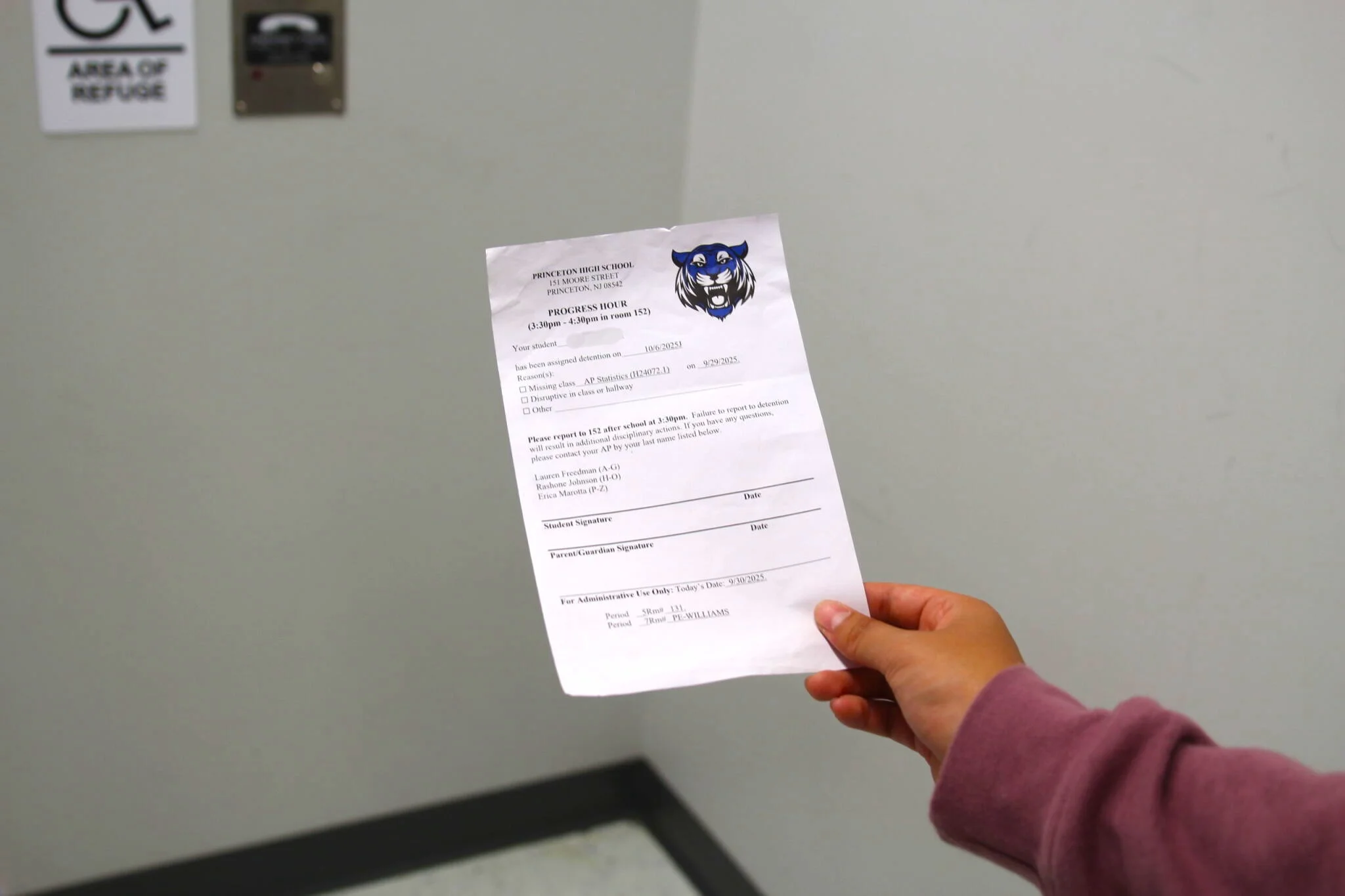This fall, the PHS administration has increased the number of detention slips given to students with unverified absences. This practice, once widespread at PHS, was carried out at a much smaller scale for the past few years due to significant leadership changes and a lack of personnel. PHS Principal Cecilia Birge describes this change as a step to combat the school’s chronic absenteeism, defined as students missing 10 percent or more of the school year.
If a student continues to accumulate absences despite repeated detentions and emails home, the counselors and assistant principals get involved to coordinate meetings with both students and parents. If all else fails, the school can disenroll or expel the student, or their parents can be taken to court by the Princeton Public Schools District.
“Chronic absenteeism in PHS ... has been highlighted at the state level, and that’s not a data point I want PHS’s name to be associated with,” said Birge.
The most common reason for the accumulation of unverified absences is cutting class.
“They just skip. I don’t understand why kids skip when they’re in school. You woke up, got ready for school, you got on the bus [or] you walked here ... and then you just skip. You’ve already done so much. Just go to class,” said Torie Esposito, a special education teacher at PHS, who is in charge of running detention.
Though the administration is taking attendance seriously, they are also trying to destigmatize the concept of these administrative actions, like detention.
“We actually do not call [detention] detention. We call it progress hour ... because like I said, [it] is a space for all of us to re-engage with students, for students to reflect upon the impact of cutting and do homework to make progress. They’re not [at school] to party, right? And on the other hand, [progress hour] is a good negative in the sense that if you know it’s bad, don’t get on to the bad. Get on to the good,” said Birge.
The detention slips are automatically generated if a student is marked present in some classes but absent in others. Then, that student is required to attend detention, which is held on Monday, Tuesday, and Thursday after school from 3:30 p.m. to 4:30 p.m. Although the use of detention slips has decreased student absences by 18 percent compared to last year, some students nonetheless see the practice as imperfect in its current form.
“I think it’s a little bit too harsh because it takes on the assumption [that students deliberately missed class], and I’ve heard from other students as well [that] they weren’t missing class. They just got marked absent by accident,” said Olivia Chen ’27, a student who accidentally got marked absent in gym class and had to attend detention.
Instead of going through the appeals process — contacting her assistant principal and providing evidence that she was in class — Chen just decided to attend detention for an hour.
“I think detention is fine. It sounds serious and all, but all it is is just you stay an hour after school in the room. I think it’s fine as it is, it’s just you need to be a little bit more lenient with how [it’s] implemented because you should implement it [for] people that have patterns and not just people that coincidentally just missed a class and got marked absent,” said Chen.
Assistant Principal Lauren Freedman encourages students to advocate for themselves when they think there’s a mistake.
“We always tell the students to go to their assigned assistant principal. We think it’s best for the student to self-advocate and reach out to their teachers if [there’s a mistake] and have the teacher email [us], ‘Oh, yes, they did come to class late, and then I changed attendance.’ And it’s an easy fix."
